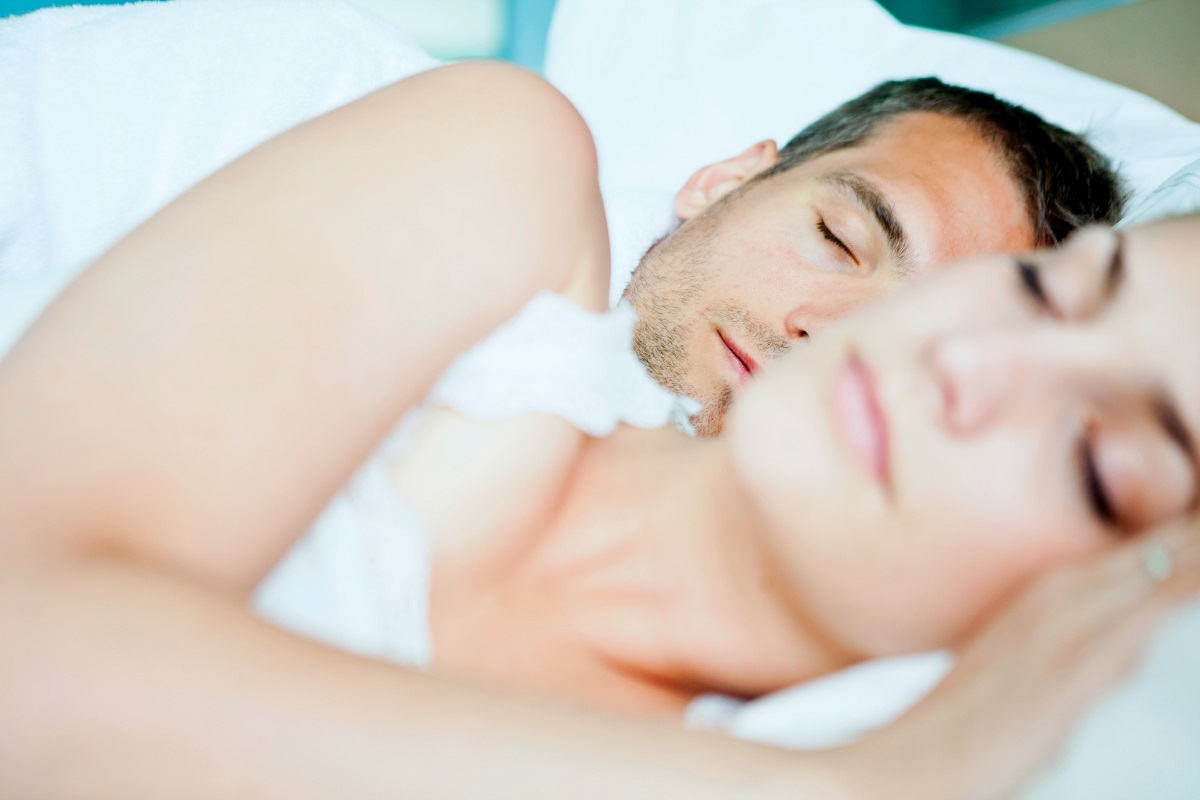In our constantly connected and fast-paced world, the quest for a good night’s sleep has become more challenging than ever for many people. This unfortunate truth has caused a dramatic increase in the appearance of sleep deprivation in adults all across the country.
A subtle yet significant health concern, sleep problems affects our daily routines, impacting our physical health, mental clarity, and emotional stability. That is why it is important that you recognize signs that could indicate you are experiencing sleep deprivation.
In this blog, we break down the various aspects of sleep deprivation, including its types, causes, and symptoms. We’ll also discuss effective methods to address and manage this common but impactful sleep condition.
What is Sleep Deprivation?
Sleep deprivation is a condition characterized by a chronic lack of sleep, affecting a person’s physical and mental well-being. The body’s need for sleep is as fundamental as its need for food and water, making it a much more serious issue than people might believe.
During sleep, the body undergoes various processes vital for physical and mental health, such as tissue repair, muscle growth, and memory consolidation. This is manifested in two main types.
Acute Deprivation
Acute sleep deprivation refers to a temporary and brief lack of sufficient sleep, it typically results from specific events or circumstances that disrupt your normal sleep patterns. This condition can be caused by various factors such as a demanding work project, a late-night social event, an urgent deadline, or even a stressful life event.
Unlike chronic sleep deprivation, which occurs over an extended period, acute sleep deprivation is more immediate and typically resolves once the triggering factors are addressed.
Chronic Deprivation
A long-term state of consistent insufficient sleep. The causes range from voluntary, such as forgoing sleep for work or social engagements, to involuntary factors like medical conditions, psychological issues, or environmental disturbances.
Sleep deprivation extends beyond mere tiredness, significantly impacting productivity, emotional balance, and overall health, leading to a range of health issues. Ultimately, sleep deprivation is a complex issue with consequences that profoundly affect an individual’s life and well-being.”
Is Sleep Deprivation Dangerous?
Indeed, sleep deprivation poses significant health risks. It can lead to cognitive impairments like memory lapses, decreased alertness, and poor decision-making abilities. Emotional and mental health is also affected, increasing the risk of mood disorders such as depression and anxiety. Physically, prolonged lack of sleep is associated with chronic health problems like obesity, diabetes, cardiovascular disease, and even a reduced life expectancy.
Can Kids Get Sleep Deprivation?
Children are indeed susceptible to sleep deprivation, but unlike adults, the signs and symptoms in children may show up in different ways such as hyperactivity, behavioral issues, learning difficulties, and mood swings. Because of this, parents and caregivers must ensure children receive adequate sleep, and follow age-specific sleep requirements.
What Are the Main Symptoms of Sleep Deprivation?
Sleep deprivation manifests in a variety of ways. Aside from the horrible feeling of a poor night’s rest, you may begin to notice a variety of sleep deprivation symptoms that can help determine whether it is the culprit or not. Recognizing these symptoms is crucial for timely intervention and treatment. The main sleep deprivation symptoms include:
- Excessive Daytime Sleepiness: Persistent fatigue and an overwhelming need to sleep during the day, often resulting in difficulties staying awake during passive activities.
- Mood Changes: Increased irritability, mood swings, and emotional instability, which may progress to anxiety or depressive states.
- Cognitive Impairments: Challenges with concentration, decision-making, and problem-solving. Memory can also be affected.
- Physical Symptoms: These manifest as headaches, eye strain, dark circles, and a weakened immune system.
- Impaired Motor Skills: Decreased coordination and slower reaction times, akin to the effects of alcohol, increasing the risk of accidents.
- Decreased Libido: Often resulting from a combination of physical exhaustion and emotional disturbances.
- Appetite Changes: Altered hormonal balance leads to increased cravings for high-calorie, carbohydrate-rich foods, potentially contributing to weight gain.
Each of these sleep deprivation symptoms can vary in intensity and frequency, and they may present differently in each individual. It’s important to be mindful of these signs, as they indicate the body’s need for rest and recovery through sleep.
What are the Most Common Signs?
Common signs include constant yawning, the urge to nap, increased clumsiness, and cravings for sugary or carbohydrate-rich foods. Recognizing these signs can help individuals take the necessary steps toward addressing their sleep deprivation.
What are the Causes of Sleep Deprivation
The causes of sleep deprivation are multifaceted and can vary from person to person. Understanding these causes is vital for identifying and addressing sleep issues. Major causes include:
- Lifestyle Choices: Irregular sleep patterns, excessive screen time before bed, and consumption of stimulants like caffeine can disrupt sleep.
- Work-Related Factors: Demanding job schedules and high stress levels can interfere with regular sleep routines.
- Environmental Influences: Conditions that are not conducive to rest, such as noisy or uncomfortable sleeping environments, and factors like travel and jet lag.
- Health-Related Issues: Medical conditions like sleep disorders, mental health challenges, and physical discomfort can all contribute to sleep deprivation.
- Age-Related Factors: Changes in sleep patterns and needs occur as one ages, often leading to lighter and more fragmented sleep.
- Diet and Exercise: Poor dietary habits and lack of physical activity can negatively impact sleep quality.
Each of these factors can independently or collectively contribute to sleep deprivation. It’s important to recognize and address these varied causes to effectively manage and improve sleep quality.
Is Sleep Deficiency the Same Thing as Sleep Deprivation?
While often used interchangeably, they are not the same. Sleep deprivation refers specifically to a lack of sufficient sleep. In contrast, sleep deficiency is a broader term that includes sleep deprivation and other sleep-related issues such as sleep disorders, poor quality sleep, and sleep disturbances.
How to Treat Sleep Deprivation
Effectively managing and treating sleep deprivation involves a combination of lifestyle changes, relaxation techniques, and professional guidance. Key strategies include:
- Establish a Consistent Sleep Schedule: Regular sleep and wake times help regulate your body’s clock.
- Develop a Pre-Sleep Ritual: Engage in relaxing activities like reading or a warm bath before bed.
- Optimize Your Sleep Environment: Ensure a quiet, dark, and cool bedroom with comfortable bedding.
- Mindful Eating and Exercise: Avoid heavy meals, caffeine, and alcohol near bedtime; maintain regular exercise, but not right before sleep.
- Practice Relaxation Techniques: Techniques like meditation, yoga, or deep breathing can aid in relaxation.
- Cognitive Behavioral Therapy (CBT): This structured program addresses thoughts and behaviors affecting sleep.
- Limit Naps: Keep naps short and early in the afternoon if necessary.
- Manage Screen Time: Reduce exposure to screens before bedtime to minimize blue light interference.
- Consider Natural Supplements: With professional advice, explore supplements like melatonin or valerian root.
- Educate Yourself About Sleep: Understanding the importance of sleep can motivate healthy sleep habits.
- Seek Professional Help: Consult sleep experts for ongoing sleep issues or suspected sleep disorders.
Implementing these healthy sleep habits can significantly improve both the quality and quantity of sleep, enhancing overall health and well-being. Remember, addressing sleep problems is not just about sleeping more, but also about improving sleep quality.
What To Do If I Have Sleep Problems?
This condition is more than a mere inconvenience; it’s a critical health concern that demands attention and action. By understanding its causes and recognizing its varied symptoms, we are prepared to take proactive steps toward better sleep health. If your sleep problems persist, you might need to speak with a sleep expert, but first, be sure to take this sleep quiz.
At the Jacksonville Sleep Center, our team of experts is equipped to help you determine whether you have sleep deprivation or sleep deficiency. We assist our patients in identifying and overcoming the challenges of sleep deprivation, offering personalized solutions to enhance your sleep quality and, by extension, your overall health and well-being. Don’t let sleep problems dictate your life. Take the first step towards reclaiming restful nights and energized days by reaching out to us.
Your journey to better sleep starts at Jacksonville Sleep Center. Awake to a brighter, healthier tomorrow!









